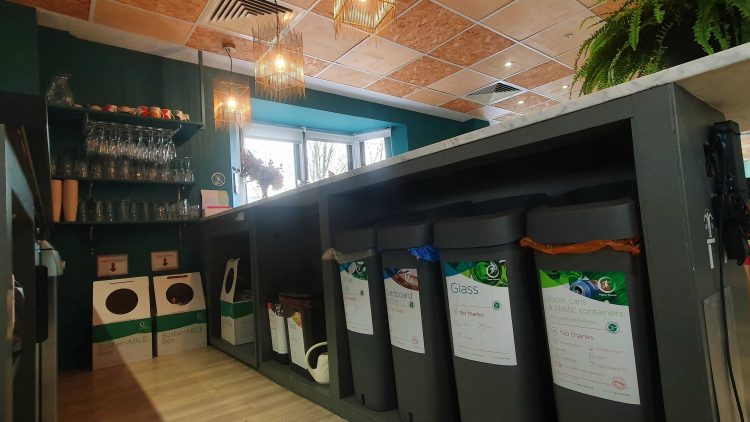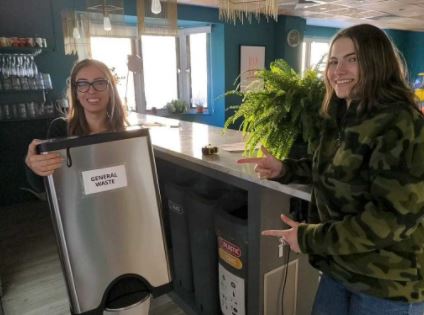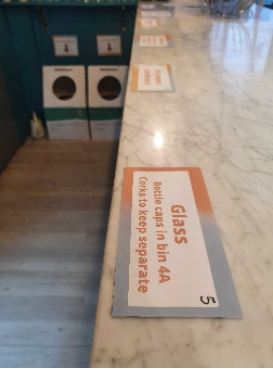
Propellernet Bins: An Exposé
Our Journey to Zero Waste Revealed.
It’s not a sexy subject, but it’s a crucial one: rubbish, refuse, garbage, trash – whatever you choose to call the 222 million tonnes of waste that are sent to landfill in the UK every year*. In 2018, 44 million of those tonnes were attributed to commercial and industrial waste.
As a business, we recognise that our waste represents a tiny proportion of this enormous problem, but not only is any waste saved from landfill a triumph in our eyes, it’s an essential aspect of our commitment to meet the highest standard of environmental impact. As such, we made a Propellernet pledge to ensure zero waste to landfill by the end of March 2022, and we put our lovingly named “bin team” to the test.
These were our three biggest learnings:
1. Collaboration

Without wanting to sound like an Oscars speech, we could not have embarked on this process without the support of our recycling supplier Recorra. Our Office Assistant, Gisela, has been phoning them up every other day seeking bin advice, and they’ve been nothing but patient throughout. We were also able to turn to our amazing B Corp community for invaluable help and spoke to the awesome team at Bates Wells who already implement a zero waste to landfill policy.
Listening to our employees has also been an essential part of this journey. I’ve been receiving all kinds of feedback about our (sometimes confusing) new recycling hub which has been so useful. We’re lucky to have very ecologically minded employees who have been jumping in with suggestions and recommendations throughout, and the more engaged you can keep your staff throughout the process, the more seriously they will take tossing their trash in the right bin.
2. Communication

We are constantly communicating our climate initiatives internally and as such our zero-waste initiative came as little surprise to our employees.
Our bin team spent nearly a day planning our new recycling hub, retiring our usual bins and introducing new ones. When we realised that we found the new system confusing, we knew that it would be super complex for the members of staff who’d not been involved. So, we created bin labels and instructions which we blu-tacked around, as well as a flow chart for the extra confusing recycling of plastic (which proves to be a continuous source of debate in the office!). These served us well while our bin system was in a constant state of change, as we could move them around according to employee feedback. Now that we have our bins in a set place, we’ve had stickers printed professionally. Only the best for our bins!
3. Continuous review
We’re always looking out for ways to improve our recycling hub, and openly encourage feedback from our employees on other initiatives we can take. For example, a recent idea was to ban disposable coffee cups from the office and to buy every member of staff a reusable cup.
Given that many employees are choosing to work remotely, the next step is working to encourage them to bring hard-to-recycle waste from home (within reason!) into the office to be recycled. We also recognise that being a digital service, a lot of our waste is digital, so this is something we’re working on reducing as much as possible too.
Stay tuned for the next riveting bin blog, coming your way soon!
*Based on DEFRA Report, updated July 2021



